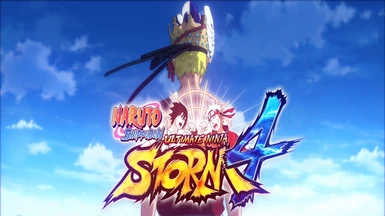

Foreshadowing the encounters which punctuate each of the game’s ten core chapters, victory hinges on the successful completion of a series of quick-time events. Restoring the invigorating boss battles which were absent from Ultimate Ninja Storm Generations, the clash flaunts the game’s visual proficiency- as players leap across the village’s rooftops, waiting for the ideal moment to launch as assault on the gargantuan foe. The title’s core campaign, entitled Ultimate Adventure, opens as Hidden Leaf Village is under attack by the Nine-Tailed Fox. That said, the title’s protracted cut-scenes and simplistic fighting engine means that the redux still won’t connect with players who are indifferent to Shippuden lore.Īlthough, the Ultimate Ninja Storm 3 made a prodigious first impression, Full Burst’s adjustments push the prologue into an ocular nirvana. The release of Naruto Shippuden: Ultimate Ninja Storm 3 Full Burst extends the game’s capability further, offering reworking the cinematic engine, adding Sage Kibuto, a hundred challenge missions, compiling the original game’s DLC costumes for the release, as well as making the game available to PC owners. By complementing the franchise’s established mechanics with a substantial narrative that covered the Fourth Great Ninja War story arc, the game’s intermingling of plot and play recalled the proficiency that developer CyberConnect2’s demonstrated with Asura’s Wrath. In many ways, last March’s release of release of Naruto Shippuden: Ultimate Ninja Storm 3 rekindled any waning interest for the Genin-level shinobi. Personally, 2009’s N aruto Shippuden: Ultimate Ninja 4 proved to be a tipping point, with the game’s quality helping to reinvigorate my appeal for the aspiring hokage. hack// and Naruto: Ultimate Ninja franchises, the studio helped dispel some of the negativity associated with anime adaptions. By offering commendable interpretations of both the.

One of the principal developers who helped reverse this trend was Fukuoka-based CyberConnect2. Although sporadic standouts such as Ghost in the Shell: Stand Alone Complex and Astro Boy: Omega Factor resisted mediocrity, the majority of licensed titles proved to be substandard cash-ins. Not long ago, blind-buying a manga or anime-based game was a dicey proposition.


 0 kommentar(er)
0 kommentar(er)
